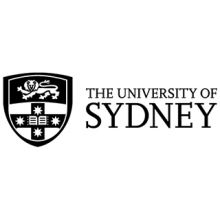To coincide with the launch of the Reputation Rankings we have published a series of comment pieces on reputation and higher education. View the ranking results here.
Reputation matters. It influences those whom we need and want to engage with, and can help or hinder ambitions. As our sector becomes increasingly homogeneous, it becomes clearer than ever that reputation is one of the few things that can differentiate your institution from the competition, at home and overseas.
Having spent a large part of my career building and protecting reputations, I’ve learned that it is possible to build a university’s reputation, but it takes focus, resources and patience. Boosting a university’s international reputation is a unique part of that challenge, so what does it involve?
Experience has taught me that domestic reputation is less likely to influence potential international students because it’s so embedded in the local context. Needless to say, all students share some drivers for university choice, but there are significant differences for domestic and overseas students. These include location, affordability, visa regimes and the reputation of the institutions in the students’ home country.
If you have been successful in one geographical area, it takes vision and a certain amount of humility to learn again for a new context. The engagement of the University of Sydney, where I worked as vice-principal in external relations from 2017, with China and India are key examples of this.
While China and India are globally the two biggest international markets for many universities, they are very divergent in their demands owing to differences in government structures, economies, cultures and values. Sydney had a strong reputation in China based on years of institutional investment and a long track record of success for Chinese graduates.
The relationship with India had, by contrast, been inconsistent, under-resourced and led by a small (but dedicated) group of academics with an interest in the region.
Developing a relationship with Indian institutions, partners and potential students called for a tailored approach for an Indian audience that had capital and authenticity. At the same time, it was crucial to not lose sight that the university was working in a wider global context.
It was necessary to make the degrees affordable in India without undermining the prestige that price held in other markets, to work out where to focus media efforts in a country with more than 100,000 official publications, and to build new partnerships without neglecting or undermining old ones.
This was all in a context that was very different from the one that the university was resourced to engage with. It took a holistic approach to continuing to support colleagues already working in the region and asking for their input and guidance. Specialists in country expertise were recruited, and the advice of the Indian diaspora living in Sydney was actively sought.
Media efforts were focused on subjects that were particularly pertinent to the population of India at that time, and a series of high-profile scholarships with an emphasis on nation-building and equity were launched.
This was supplemented by a series of innovative partnerships with higher education, industry and not-for-profits with a particular focus on joint research and building skills for employability. And all this was supported with a “feet on the ground” approach – which ended up being transformative for the university’s reputation in India.
Of course, we can’t talk about university reputation without acknowledging that academic reputations are built on the views of other academics and exploring how, in an increasingly busy space, scholars and researchers are supported to share your work with those that matter.
One way is the effective use of social media. This can sometimes be a toxic environment, making it easy to lose sight of how powerful some platforms can be as a tool for engagement, rather than merely broadcasting.
Traditional media continue to play a role, but smart marketing teams now also work to support academics to hone their social media skills, draw up target lists for connections and develop dissemination strategies for their work that are complementary to the traditional press release and conference circuit.
When done well, it works because academics are tapping into other people’s networks without fear of distortion, providing them with information that is of interest to them and creating an immediate opportunity for engagement.
After two difficult pandemic years, many believe that right now nothing can replace the opportunity for direct collaboration and partnership when building relationships between individuals and organisations. Times have changed, though, and most institutions have moved beyond the memorandum of understanding that often led nowhere. Universities recognise that defined partnerships, rather than vague agreements, lead to real collaboration.
Academic partnerships have, for the most part, happened serendipitously, and much of their success depends on the right time, right place and right funding – with reputation not often part of the design. There are some examples, however, of universities rethinking how we partner from the ground up.
One exemplar was a global strategic partnership project initiated by Kathy Belov, professor of genomics and pro vice-chancellor for global research engagement at the University of Sydney.
This focused on developing 28 new international strategic partnerships at a whole-of-university level. Universities in North America, Asia and Europe were selected using criteria that looked for the potential benefits that a partnership could bring to each institution, including reputation impact. Seed funding was made available by both institutions to facilitate academic partnerships.
Student and staff exchanges were encouraged, and they were supported as part of the agreements, while momentum was maintained through a structured governance model. Learnings were systematically shared across the whole initiative through bespoke conferences and seminars.
The initiative had to be funded, managed and promoted, but it raised the profile of the university across 28 highly ranked partners and created the context for ongoing collaboration, which is already reaping benefits.
When it comes to reputation, we cannot ignore crisis management. I’ve worked in, and with, universities across the globe for more than 15 years, and it feels like the hostility towards the sector from some quarters has increased exponentially in that time.
Crisis management is no longer viewed as a rare event that we plan for through tabletop exercises, but instead as part of our day-to-day existence. I believe that some universities would benefit from having trained resources that are dedicated to helping the organisation respond to these forms of enquiry and commentary. A knowledge of institutional history, emotional maturity, common sense and a nuanced command of language can, in my experience, go a long way to toning down the most blistering attack and presenting a more balanced view.
Finally, remember that it’s not possible to fix everyone’s opinions of you. Universities have finite resources and conflicting priorities – and trying to manage all of our reputations is akin to trying to boil the ocean. So focus on those whose opinion matter, and have the courage to walk away from those that don’t.
Reputation is a university’s currency for engaging with the world. Nurture it, protect it and never take it for granted.
Tania Rhodes-Taylor is chief executive of Otus Advisory, a higher education consultancy and coaching practice. She has previously worked in universities in the UK, Europe and Australia and was vice-principal of external engagement at the University of Sydney.
Register to continue
Why register?
- Registration is free and only takes a moment
- Once registered, you can read 3 articles a month
- Sign up for our newsletter
Subscribe
Or subscribe for unlimited access to:
- Unlimited access to news, views, insights & reviews
- Digital editions
- Digital access to THE’s university and college rankings analysis
Already registered or a current subscriber? Login







